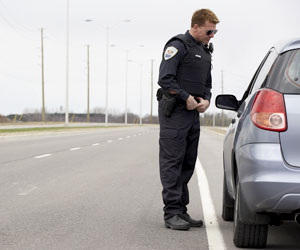
April 4, 2013 – A police officer conducting a random registration check stopped a truck after misreading its license plate. Realizing the mistake, the officer approached the car to explain. The driver was drunk. Recently, a state appeals court upheld the defendant’s OWI conviction.
In November 2010, the officer was tailing a truck around midnight. He ran a registration check on the vehicle, which listed the truck as red. But this truck was blue.
The officer then realized his mistake, but continued with the stop to provide an explanation. He noticed an odor of alcohol, conducted a field sobriety test, and arrested the driver.
The defendant, Donald Laufer, challenged the ultimate conviction on the ground that the officer lacked a legal justification to make the stop. He had filed a motion to suppress all evidence because the officer did not have probable cause. The circuit court denied the motion.
In State v. Laufer, 2012AP915-CR (April 3, 2013), the District II Wisconsin Court of Appeals affirmed the circuit court ruling, concluding the officer’s stop was based on a mistake of fact. [Update: This opinion was withdrawn by the Court of Appeals on April 16, 2013].
“[T]he objective facts related by the officer supported a reasonable, if mistaken, suspicion that Laufer was driving a vehicle displaying incorrect plates based on the registration check he ran on the misread plates,” wrote Judge Lisa Neubauer for a three-judge appeals panel.
“We therefore adopt the reasoning set forth in Reierson and uphold the stop based on a good-faith mistake of fact in this case,” Judge Neubauer explained.
The appeals court explained that in general, police officers cannot make traffic stops without a reasonable belief that a violation of law has been or will be committed. If an officer is mistaken about the law, there can be no probable cause. Mistakes of fact are different.
“It turned out that the officer was mistaken in his observations as a matter of fact, but the facts related by the officer constituted a violation of the law,” Judge Neubauer wrote.
The court followed State v. Reierson, 2010AP596-CR (April 28, 2011), an unpublished opinion in which the court ruled that an officer’s good faith mistake of fact didn’t negate probable cause.
In that case, the officer stopped a vehicle thinking the license plates were expired. The plates were not expired, and the defendant was ultimately convicted for OWI, third offense.
